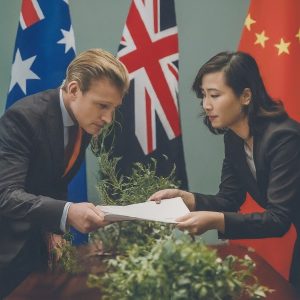Australia has two new Free Trade Agreements. So what now?
 Not before time, Australia has concluded Free Trade Agreements with Korea and Japan. This is fantastic. As a former trade negotiator, I’ve been an advocate of finalising trade agreements with our key trading partners – even if the deal is not perfect. Yes, some individual tariff lines, or perhaps some industry sectors, will not enjoy the benefits achieved in other areas. This is regrettable.
Not before time, Australia has concluded Free Trade Agreements with Korea and Japan. This is fantastic. As a former trade negotiator, I’ve been an advocate of finalising trade agreements with our key trading partners – even if the deal is not perfect. Yes, some individual tariff lines, or perhaps some industry sectors, will not enjoy the benefits achieved in other areas. This is regrettable.
But what should Australia do – hold cheaper trade hostage until a perfect agreement is reached? This would mean denying the benefits to the overwhelming majority of the economy for as long as it takes to achieve perfection. The truth is – though it is rarely said publicly – the best trade deals are where everyone comes away hurting a little…
But a trade deal does not itself grow economies. It is now up to each and every business to examine, understand, and exploit new opportunities opened by the FTA.
So what can Australian companies do right now to get the benefit of these FTAs?
- Missed out on a supply contract to Japan or Korea in the past 5 years? The FTA may make your bid 5%, perhaps 10% or 20% more competitive. Email the procurement manager and let them know you want to re-engage on the project or opportunity under these new conditions.
- Looking at exports into Japan or Korea? Get to know your tariff. Yes, the tariff is typically the concern of the importing customer – but it should be your business now. You can make your customer’s imports cheaper by complying with the FTA’s certification process. You will have to check through the detailed schedules of the FTA (once fully published) but you may be in for a nice surprise when you find a tariff has been eliminated.
- Speak to your customs broker– they should be able to point to advice on the so-called ‘rules of origin’. These are the rules which govern who has to manufacture a product for it to be considered “Australian” under the rules of the FTA. You can try to work it out yourself, but it’s a bit messy. Without getting on top of this aspect, the FTA will have no effect on your trade.
- Looking at setting up overseas? FTAs open up whole new swathes of the partner economies to overseas investment. They also, naturally, create more favourable conditions for supply chains. That is because they make trading in goods across borders cheaper. Korea – more than most others – offers excellent supply chain prospects, as it now has FTAs with ASEAN, Australia, the US and the EU. This means that an Australian made input to a Korean finished product may now be cheaper into Europe, than if the good were to be finished in Australia and sent directly.
Most importantly, FTAs only take effect on a certain scheduled date. First they must be signed (as Korea has been), then adopted by national Governments, and will only ‘come into force’ on a particular date. But the day they come into force, you should be ready to extract the full benefit. So all the work for Australian companies must start now.
Danny Burrows, TradeWorthy


